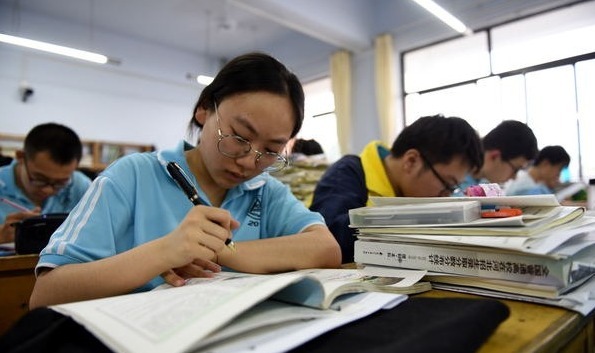Ministry aims to close admission loopholes
By ZOU SHUO | China Daily | Updated: 2020-06-11 09:02

Nationalities of international candidates entering colleges need better checks
The Ministry of Education wants universities to strictly confirm the nationalities of prospective international students to close loopholes in admissions.
The ministry issued a rule on Wednesday targeting students who acquired foreign nationality by birth but have studied at Chinese primary and secondary schools and have at least one parent who is of Chinese nationality.
Starting next year, such students should have lived in a foreign country for more than two of the past four years to be able to apply to study at Chinese universities as international students, the ministry said in a notice.
It said another option if they want to be admitted to a Chinese university is to take the highly competitive national college entrance exam, known as the gaokao.
The universities should check the nationality and travel records of such students with entry and exit authorities, it said.
Cases of such students attending Chinese universities as international students have attracted widespread public attention in recent years, it said.
The new overseas residency requirement for foreign-born students matches an existing requirement for students who have acquired foreign nationality through emigration.
To apply for Chinese universities as international students, those students need to have held their foreign nationality for at least four years and have lived overseas for more than two of the past four years, the ministry added.
Yu Minhong, founder of education consultancy New Oriental Education and Technology Group, said Chinese students have to pass the gaokao to enter Chinese universities, but international students have been admitted based on their test scores in high schools and the HSK exam, a Chinese language proficiency test.
That has prompted some parents to give birth to their children overseas so they can bypass the gaokao, he said.
In an effort to appear more international, some Chinese colleges and universities have indiscriminately expanded the number of foreign students without paying enough attention to their credentials and research abilities, he said.
He suggested the ministry further expand the time requirement for these students to live in a foreign country to truly qualify as international students.
"Authorities should strictly check the nationalities of such students and add personal statements, interviews and a referee system as part of the review process to make sure their identities hold water."
Xiong Bingqi, deputy director of the 21st Century Education Research Institute, said he agrees with the new rule as it ensures fairness in one of the most important tests for Chinese students.
As more than 10 million high school graduates will sit for the gaokao this year, and only a small portion of them can be admitted to top universities, the importance of making sure the exam is fair to every student and ruling out admission loopholes can never be underestimated.
"As gaokao is still the only way for college admission in the country and provides the chance for less-privileged students to make it to the top, it is crucial to make sure the exam is not rigged to favor those with money and resources."
























